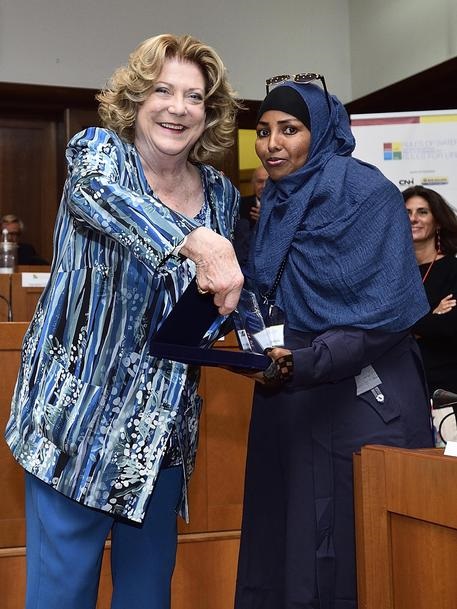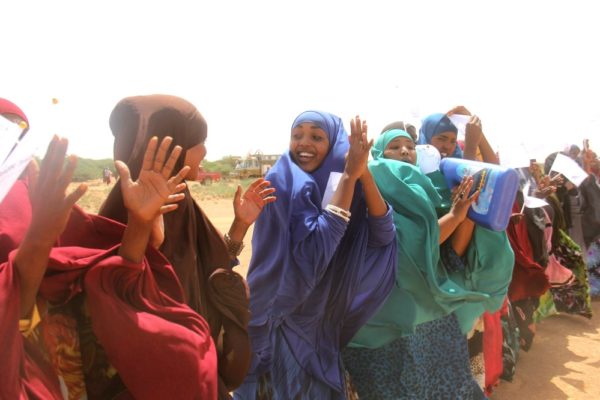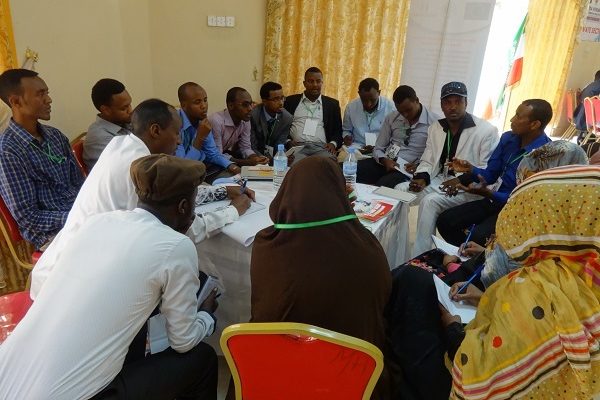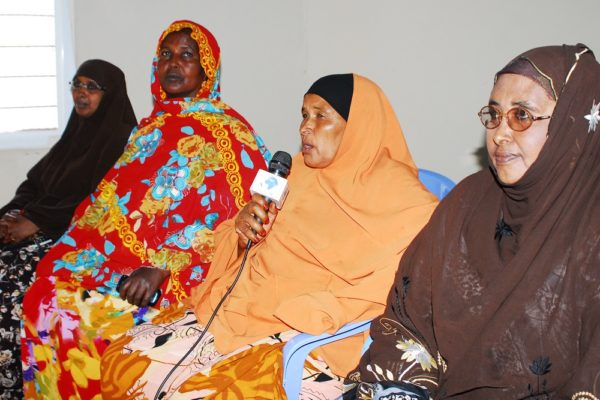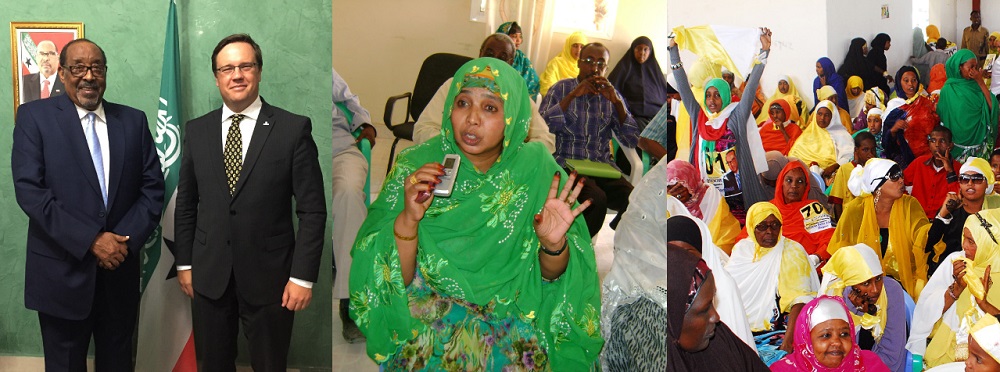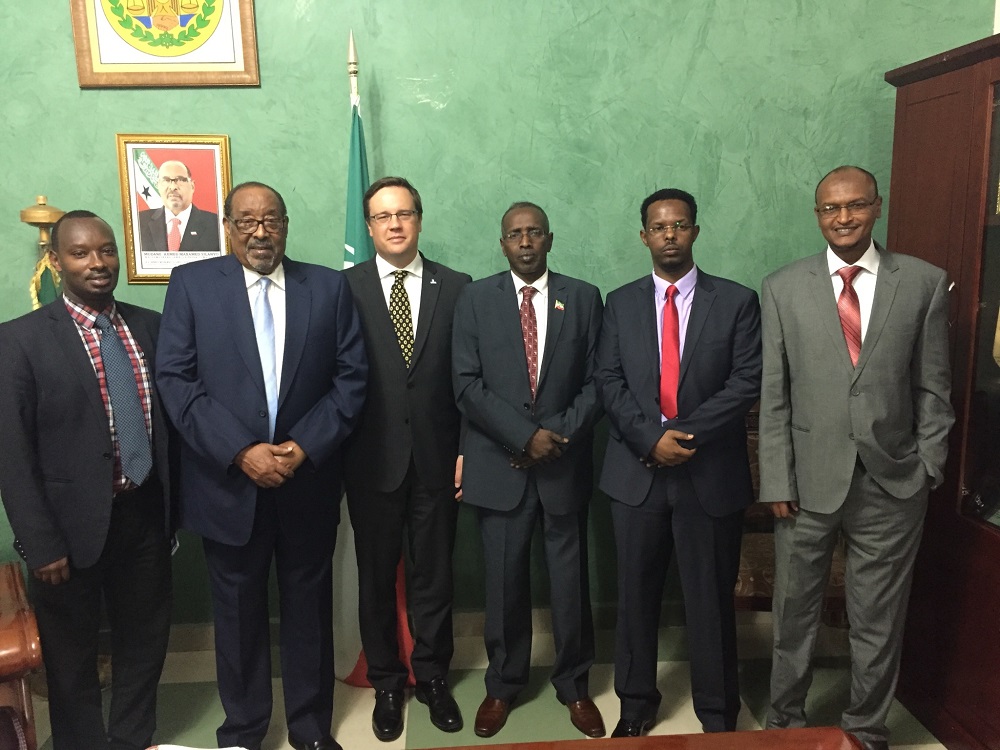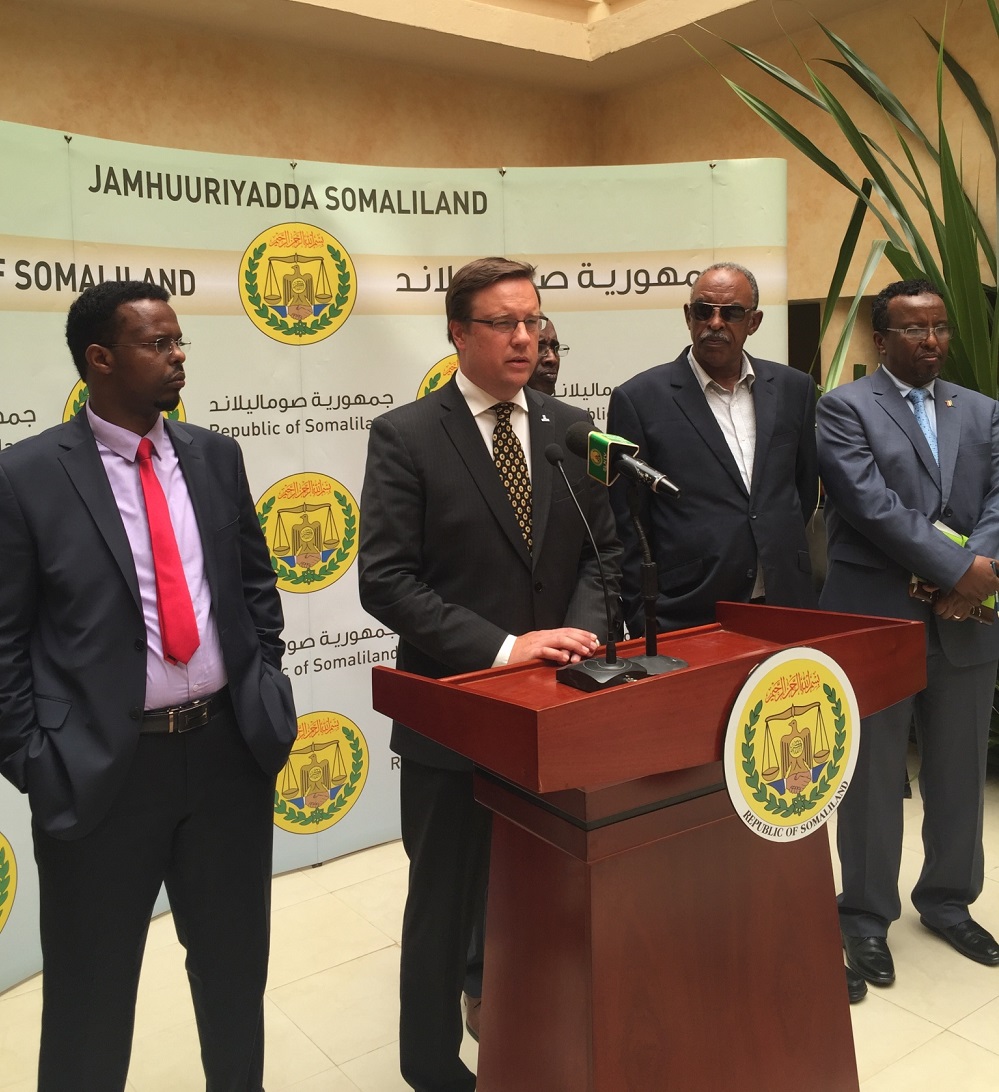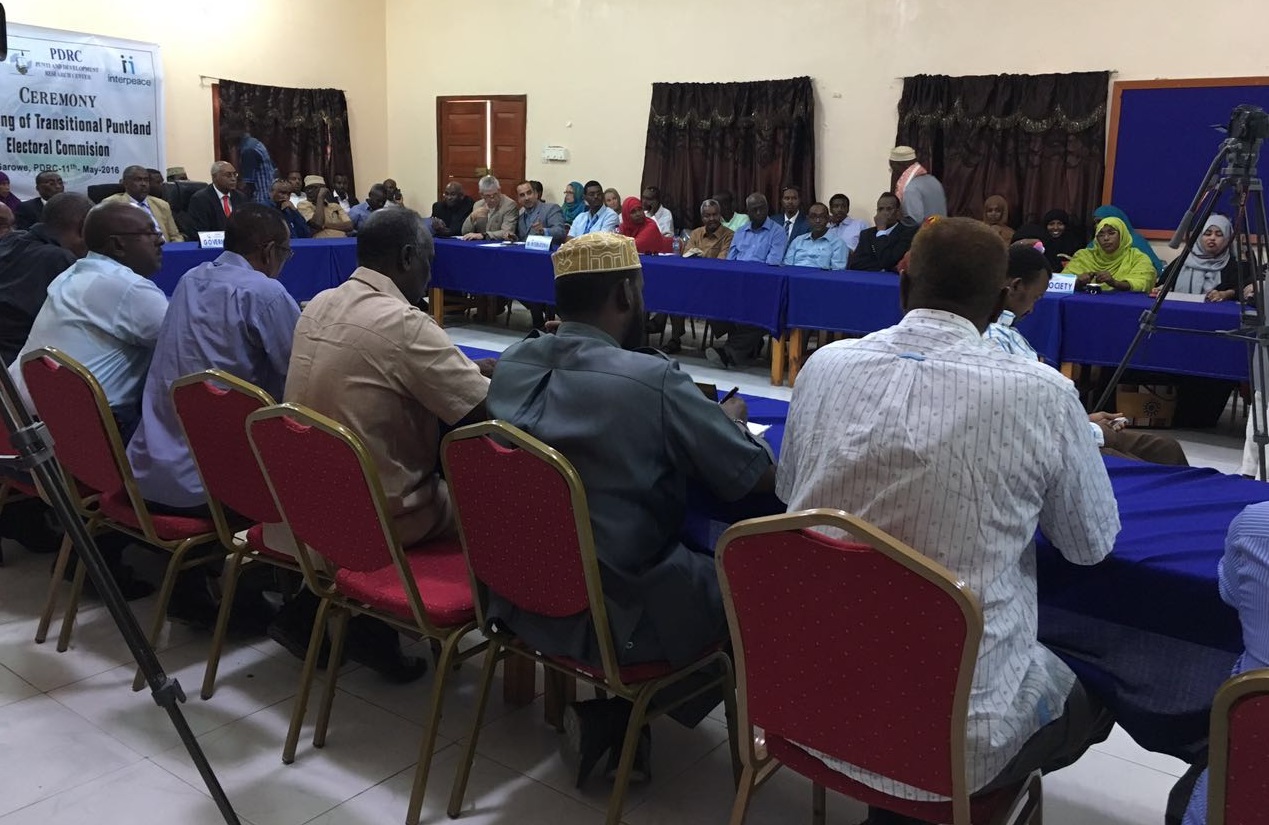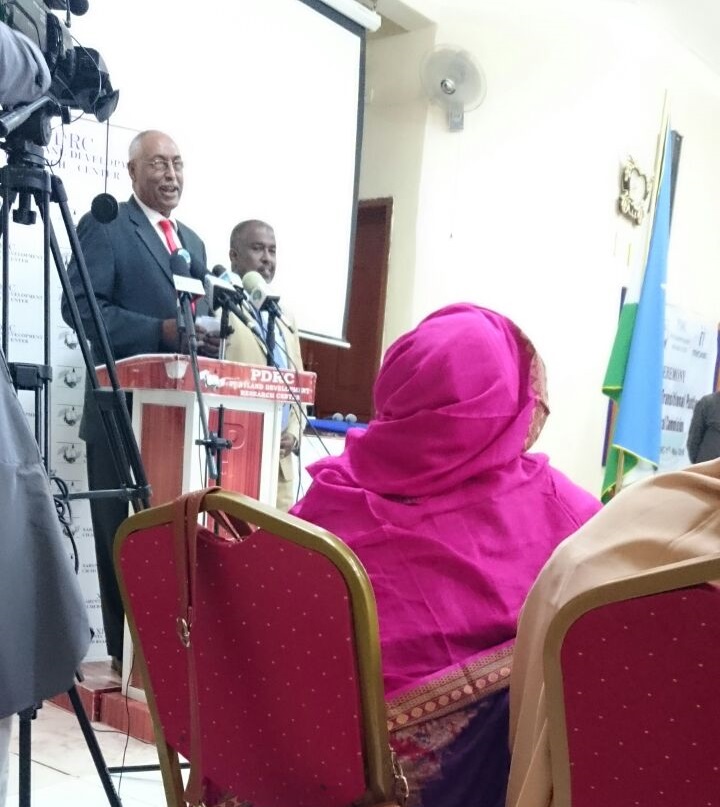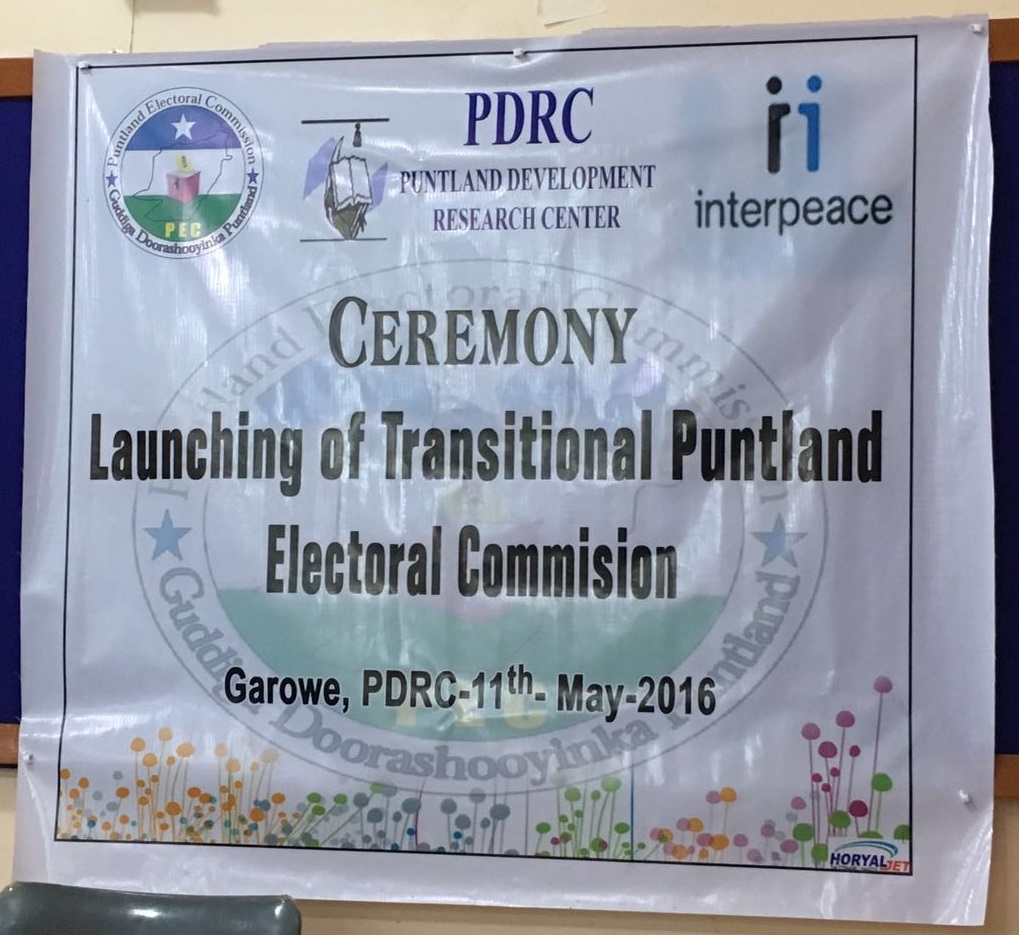It is with an immense sense of loss that Interpeace announces the passing of Abdirahman Osman Raghe, a towering figure in the organization’s peacebuilding work in Somalia and the greater Horn of Africa.
Raghe was founding Director of Interpeace’s Somali programme and Deputy Director of the Somali programme of Interpeace’s forerunner, the War-Torn Societies Project (WSP). He spent over two decades with Interpeace in various capacities, and became one of the most important senior advisors. In 2013, he received a citation for his longstanding commitment to peace from Interpeace's Chairman Emeritus, former Ghanaian President John Kufuor.
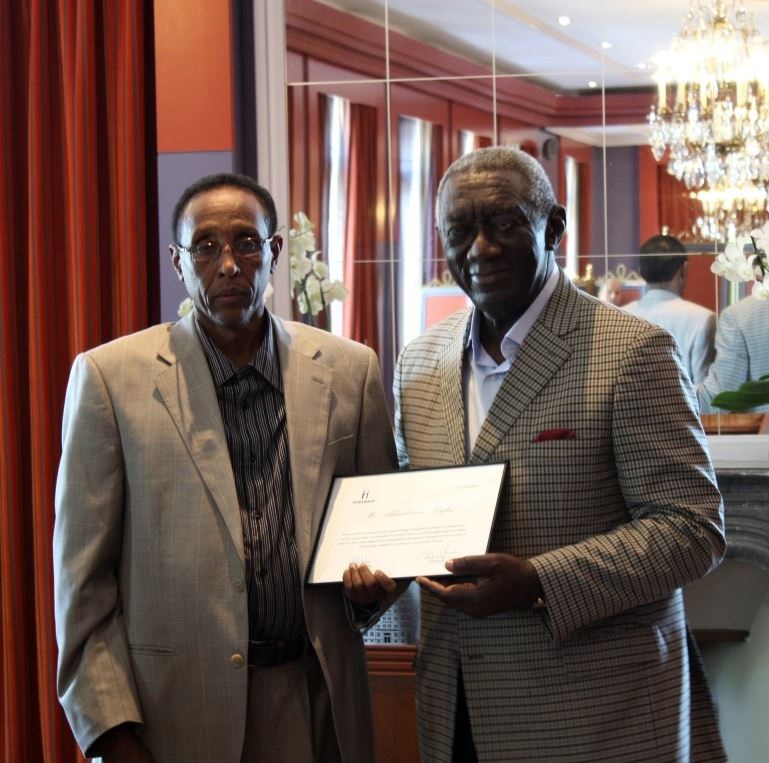
Raghe receives a citation for his longstanding commitment to peace from Interpeace's Chairman Emeritus former President John Kufuor of Ghana. Photo credit: Interpeace
Raghe’s personal history made him a uniquely knowledgeable, experienced, and respected observer of Somali development and political issues. In his earlier years, he had served as Permanent Secretary in Somalia’s Interior Ministry until 1989, and later worked for UNDP. He returned from Canada in 1998 to help rebuild the peace in his native Somalia, which had fallen into the throes of a complex civil war during his time away.
Various colleagues and friends from the Interpeace family have described Raghe as an extraordinary peacebuilder, an exemplary father, husband and a dear friend. Johan Svensson, Interpeace’s Senior Regional Advisor for Eastern and Central Africa, remembered the pivotal role that Raghe played in the establishment of Interpeace’s Somali programme, as well as his influence on Interpeace’s general direction as a peacebuilding organization.
“Raghe was a unique man. He guided the Somali programme to great achievements over the years and influenced Interpeace’s path globally,” Mr. Svensson said. “As an organization, Interpeace benefitted from his wisdom in many ways. We will miss him, but his legacy will remain.”
Interpeace’s Regional Director for Eastern and Central Africa (ECA), Jean Paul Mugiraneza, paid tribute to Raghe’s commitment to the cause of peace and his ever readiness to hold others by the hand and win them over to the cause.
“He was a mentor to many, a true peacebuilder whose legacy remains with all of us,” said Mr. Mugiraneza. “He was a strong and loving person who was loved and admired, in return, by a whole circle of people that he touched during his lifetime. I am grateful to be one of these people.”
Interpeace’s Director-General, Scott M. Weber, remembers how Raghe instilled inspiration and courage amongst his friends and colleagues.
“Many of us who grew professionally in Interpeace did so inspired by Raghe’s example and under his watchful eye," said Mr. Weber. "When Raghe spoke, we listened. And we learned. No matter what the subject, he always delivered his message with conviction and a deep sense of purpose but also with a hard-earned wisdom many of us may never achieve. If Interpeace were a village, he would have been one of our elders.”
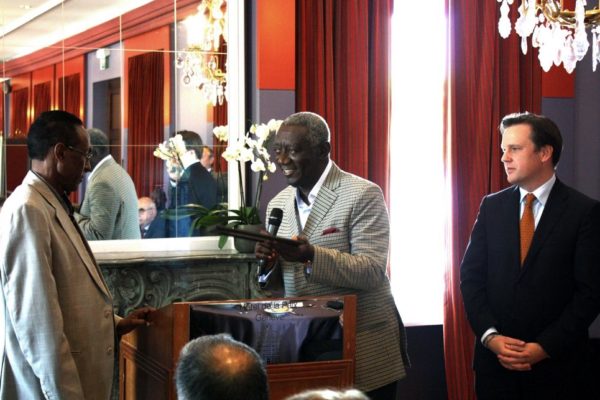
Raghe receives a citation for his longstanding commitment to peace from former President John Kufuor of Ghana with Director-General of Interpeace, Scott Weber. Photo credit: Interpeace
The entire Interpeace family extends its condolences to Raghe’s family, his many friends, colleagues and the entire Somali community.
